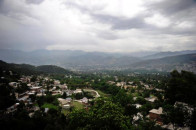Afghan peace process : Pakistan must play ‘smart diplomacy’, suggest experts
Urge Islamabad to support Afghanistan’s development for stronger bonds

Afghan peace process : Pakistan must play ‘smart diplomacy’, suggest experts
This was the crux of deliberations by experts at a special seminar on the Afghan Peace Process: Implications and Stability. The seminar had been organised by the Sustainable Development Policy Institute (SDPI) in Islamabad on Thursday.
Former foreign secretary Salman Bashir said that scant attention had been paid towards the social and economic development of Afghanis by all the stakeholders.
In the war to attain peace in Afghanistan, he said that economic stability of the war-torn country was more important amid the chaotic political wrangling and a drawn-out peace process.
He said that Pakistan could also focus on the China-Pakistan Economic Corridor (CPEC) Plus by expanding the game-changing project to Afghanistan. This, he argued, would be in the interest of both China and Pakistan.
Commenting on the current peace process, he cautioned that if there was no consensus until the middle of this year, the US may withdraw its troops unilaterally and it could see Afghanistan descend into civil war and chaos once again.
“There is a need for an orderly US withdrawal from Afghanistan,” he added.
Ambassador (retired) Ayaz Wazir said that Pakistan should support an Afghan-owned and Afghan-led peace resolution and should pursue its own interests, instead of meddling with intra-Afghan affairs.
Pakistan is not prepared to handle Afghanistan, he opined, adding that we have already failed to handle our own tribal areas.
The writ of the Afghan government is at a historic low and the Afghan Taliban now control over 70 per cent of Afghanistan’s territory which has pushed stakeholders, especially the US, to talk and negotiate.
Pointing to the Afghan presidential elections, due later this year, he said that the Taliban would never accept a political set-up similar to the incumbent government in Kabul.
Responding to a question, Ambassador Wazir said that India will likely remain quiet during the peace process and would bide its time until the opportunity presents itself.
If the intelligence agencies of both countries signed an agreement of mutual cooperation for cross-border intelligence sharing, it could prove to be a real cornerstone for building confidence between Kabul and Islamabad.
Senior Analyst Imtiaz Gul said that the progress towards the recent Afghan peace process has seen a sea change in the last couple of weeks.
With efforts for peace and stability in Afghanistan a shared and regional responsibility of all stakeholders, efforts should be made to take countries such as Iran and Russia on board to make the negotiations a success and meaningful.
He added that the responsibility also lies on the Afghan Taliban that they should give a guaranty to the stakeholders that all minorities in Afghanistan will remain unharmed and there will be a ceasefire until peace talks conclude.
He further said that we have to develop a comprehensive strategy and policy for Afghan refugees to counter the negative propaganda surrounding them.
SDPI Board’s Chairman Ambassador (retired) Shafqat Kakakhel said that every country, including Pakistan and Afghanistan, have a major stake in achieving peace and stability.
Stressing on the need for mutual cooperation, he said that there is tremendous potential for medical tourism between Pakistan and Afghanistan. In this regard, he suggested that Peshawar could become a hub for medical tourism for Afghans.
We should not think in terms of economic depth rather than of strategic depth, where we have around a trade potential of $5 billion,” Ambassador Kakakhel said.
He said that Pakistan should not only contribute in the restoration of peace but also in the sustainability of peace which would reinforce unity amongst the two states.
SDPI Resilient Development Programme Director Dr Shafqat Munir said that Afghanistan always remained a key diplomatic challenge for Pakistan on the security and internal political front.
Published in The Express Tribune, January 4th, 2019.



















COMMENTS
Comments are moderated and generally will be posted if they are on-topic and not abusive.
For more information, please see our Comments FAQ